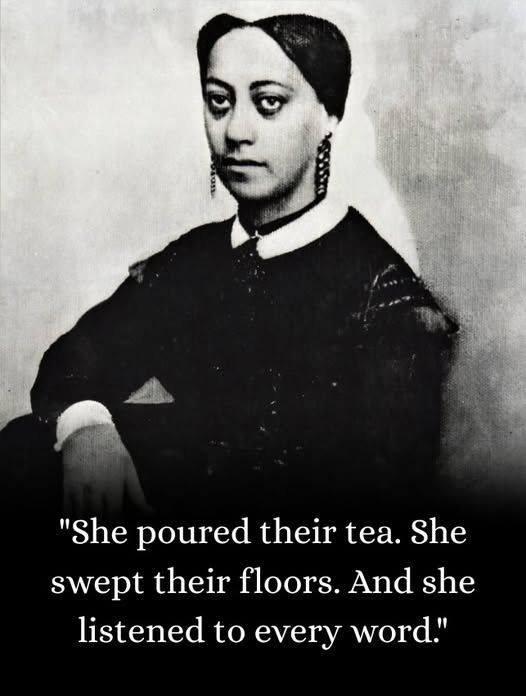
She poured their tea. She swept their floors. And she listened to every word.
San Francisco, 1850s. The Gold Rush had transformed a sleepy port into a city drunk on sudden wealth. In the grand mansions on Nob Hill, fortunes were made and lost over brandy and cigars.
And in the corner of those rooms, refilling glasses and clearing plates, was a Black woman named Mary Ellen Pleasant.
To the wealthy men talking business, she was furniture. Invisible. Forgettable.
They had no idea she was taking notes.
As they debated which banks were solid, which properties would boom, which ventures were worth risk—Pleasant absorbed everything. She understood something they didn’t: information is power. And she’d been handed it for free.
She started small. A laundry here. A boarding house there. While other women scrubbed floors to survive, Pleasant was building an empire.
She bought restaurants and dairies. She acquired shares in the very banks those wealthy men discussed. When racial barriers blocked her path—and they constantly did—she partnered strategically with Thomas Bell, a white banker who held investments in her name while she made the decisions.
The invisible servant was becoming one of San Francisco’s wealthiest entrepreneurs.
But Pleasant wasn’t building wealth just to have it. She was building it to wield it.
While running her businesses by day, she was funding freedom by night. She supported the Underground Railroad, helping enslaved people escape to freedom. She financed civil rights cases. And when she faced discrimination herself—thrown off a San Francisco streetcar because of her race—she didn’t just complain.
She sued.
In 1868, she won a landmark case that desegregated San Francisco’s public transportation. Not through protests or petitions, but through the legal system—funded by the fortune she’d built from overheard conversations.
Her power made people deeply uncomfortable.
How dare this Black woman have money? Influence? The audacity to fight back?
The newspapers turned on her. They called her a “voodoo queen.” They invented sinister stories. They tried to paint her power as dark magic rather than acknowledge her brilliant mind and business acumen.
Pleasant faced it all with steel in her spine.
“I’d rather be a corpse than a coward,” she said.
And she meant it.
She never apologized for her wealth. Never backed down from her activism. Never pretended to be less than she was to make others comfortable.
Mary Ellen Pleasant understood something profound: real power isn’t just having money. It’s knowing when to be invisible and when to be impossible to ignore.
She spent years listening in silence, building her fortune in shadows. Then she used every dollar of it to fight for a world where people like her wouldn’t have to hide.
You won’t find her in most history textbooks. For generations, her story was deliberately erased—too complicated, too powerful, too inconvenient to the narratives people wanted to tell about who built America and who deserves credit.
But history has a way of surfacing truth.
Mary Ellen Pleasant turned silence into strategy, invisibility into influence, and overheard whispers into a fortune she used to change the world.
She swept their floors. She poured their tea.
And she built an empire they never saw coming.
